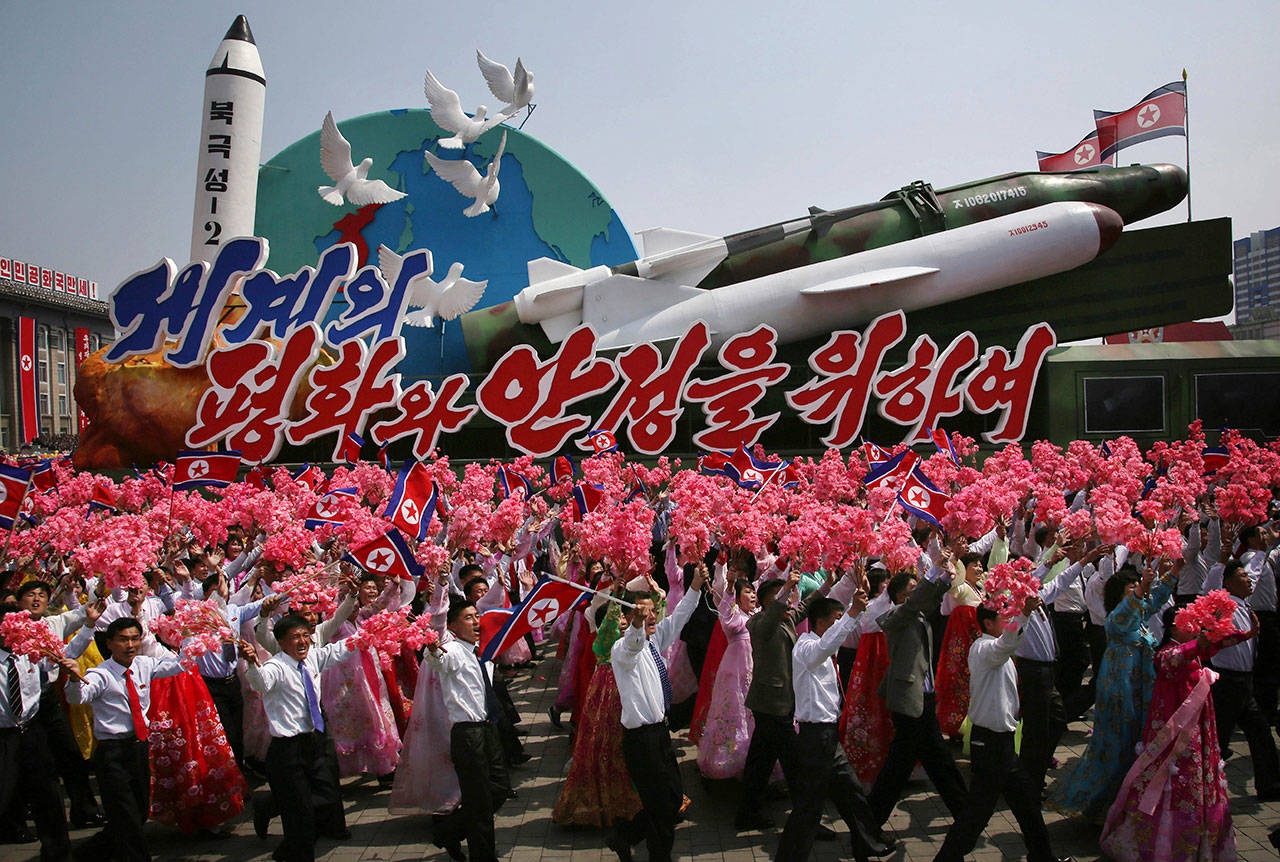By The Herald Editorial Board
Last month, with tensions high over North Korea’s recent tests of nuclear devices and the long-range missiles that might carry them one day, conservative pundit and author Ann Coulter tweeted a self-pleasing quip about the potential threat:
“N Korea will make nuke capable of hitting Seattle! Situation will be dire as soon as they can hit a city worth saving.”
Oh, Ann, please stop. Our sides are aching from laughter.
Where Coulter saw an opportunity for a dig at the “left coast” city that, among other sins, voted overwhelmingly for Hillary Clinton, the concerns about North Korea’s nuclear capabilities caused others, including two state lawmakers, to begin soberly thinking about the unthinkable.
Republican Sen. Mark Miloscia of Federal Way and Democrat Sen. David Frockt of Seattle wondered what plans state officials and agencies had in place for a nuclear attack. The answer? None, at least none specific to a nuclear attack.
Since 1984, when the state adopted all-hazards emergency preparedness plans, state law specifically barred any emergency preparations for evacuation or relocation of residents in the event of a nuclear attack, according to recent stories by the Associated Press and Crosscut.
The thinking at the time was informed by the philosophy of Mutually Assured Destruction. In an era when the larger nuclear threat was in the hands of stable if not always friendly regimes, MAD helped keep the peace. A section of the 1984 bill, struck by then-Gov. John Spellman during its signing, noted that the Legislature believed planning for that disaster installed a “false sense of security in our citizens that they will be protected if a nuclear attack occurs.” Better to negotiate the end of the Cold War’s threats of nuclear war than prepare for them.
In other words: Duck-and-cover is good advice during an earthquake, not at a nuclear weapon’s ground zero.
Miloscia doesn’t believe North Korea will have the ability to strike targets in Washington state anytime soon, but considers it silly to prohibit preparing for that threat. “People are going to survive,” he told the Associated Press. “They survive if there’s proper planning.”
Miloscia has yet to schedule a hearing to begin talking to officials and agencies about what should be included in such a plan, and he and Frockt may wait until next year, while the Legislature tackles budgets and the education funding crisis this year.
Earthquakes and tsunamis remain the more likely threat to Washington state residents, a spokeswoman for the Washington State Emergency Management Division said in the AP report, and much of the general disaster preparedness plans that are in place would direct response following a nuclear attack. But Miloscia said, the state needs plans to specifically address the threat of radiation fallout and contamination.
At the same time the state also should be making additional plans for the radiological threat located within our own borders, as was made clear by events this week at the Hanford Nuclear Reservation.
While no one was injured and no radiation was reportedly released, a Hanford tunnel — one of several that cover rail cars where highly radioactive materials have been “temporarily” stored since the 1950s and ’60s — collapsed Tuesday.
The tunnels, actually timber-and-dirt berms built over tracks, store equipment removed from a shuttered plutonium processing plant. A Vanderbilt University study warned the federal Department of Energy, which oversees Hanford, that the tunnels would be at risk during an earthquake, leading to their potential collapse and release of radiation, The Spokesman-Review reported Tuesday. The 2015 report, however, estimated that the likelihood of collapse was 30 years off.
Following the collapse, Oregon, whose Columbia River border with Washington, is downstream of Hanford, set up a operations center in Salem as a precaution, The Tri-City Herald reported.
Washington state and its agencies have kept emergency preparedness plans updated, held drills to test communications and readiness and looked at technology that might provide better warning when disasters strike. Most recently, the state has convened a Resilient Washington Subcabinet of state agencies to coordinate and better prepare for natural disasters.
Amending those efforts to include preparedness for a nuclear attack or accident makes sense. Lawmakers can begin gathering the insights of experts that can allow for planning for the unthinkable. But they should also allocate funding necessary to plan and prepare for all disasters, natural, nuclear or a combination of the two.
In Our View
Talk to us
> Give us your news tips.
> Send us a letter to the editor.
> More Herald contact information.

























